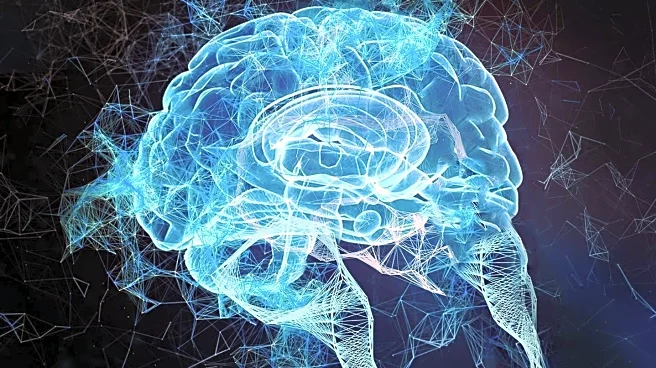What's Happening?
A man suffering from severe, treatment-resistant depression for over 30 years has experienced remission following a new brain stimulation method developed by researchers at the University of Minnesota. The method involves implanting electrodes and sending weak electrical signals to specific brain areas linked to depression. This personalized approach, tailored to the patient's unique brain structure, has relieved symptoms for up to two years. The study, led by psychiatrist Ziad Nahas, highlights the potential of individualized brain stimulation in treating depression, offering hope for those who have not responded to traditional treatments.
Why It's Important?
This development is significant as it offers a potential breakthrough for individuals with treatment-resistant depression, a condition that does not improve with standard treatments like medication or therapy. The personalized brain stimulation method could revolutionize mental health treatment by providing a more effective alternative to electroconvulsive therapy, which often fails for some patients. The success of this approach may lead to broader applications in psychiatry, improving the quality of life for many who suffer from chronic depression. It also underscores the importance of personalized medicine in addressing complex mental health issues.
What's Next?
The research team plans to conduct a double-blind clinical trial to further validate the effectiveness of this personalized brain stimulation method. They have already implanted a second participant and are preparing to implant a third. If successful, this approach could become a standard treatment for depression, potentially influencing public health policies and insurance coverage for mental health treatments. The ongoing research will continue to refine the technique, aiming to optimize the stimulation settings for maximum benefit.








